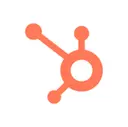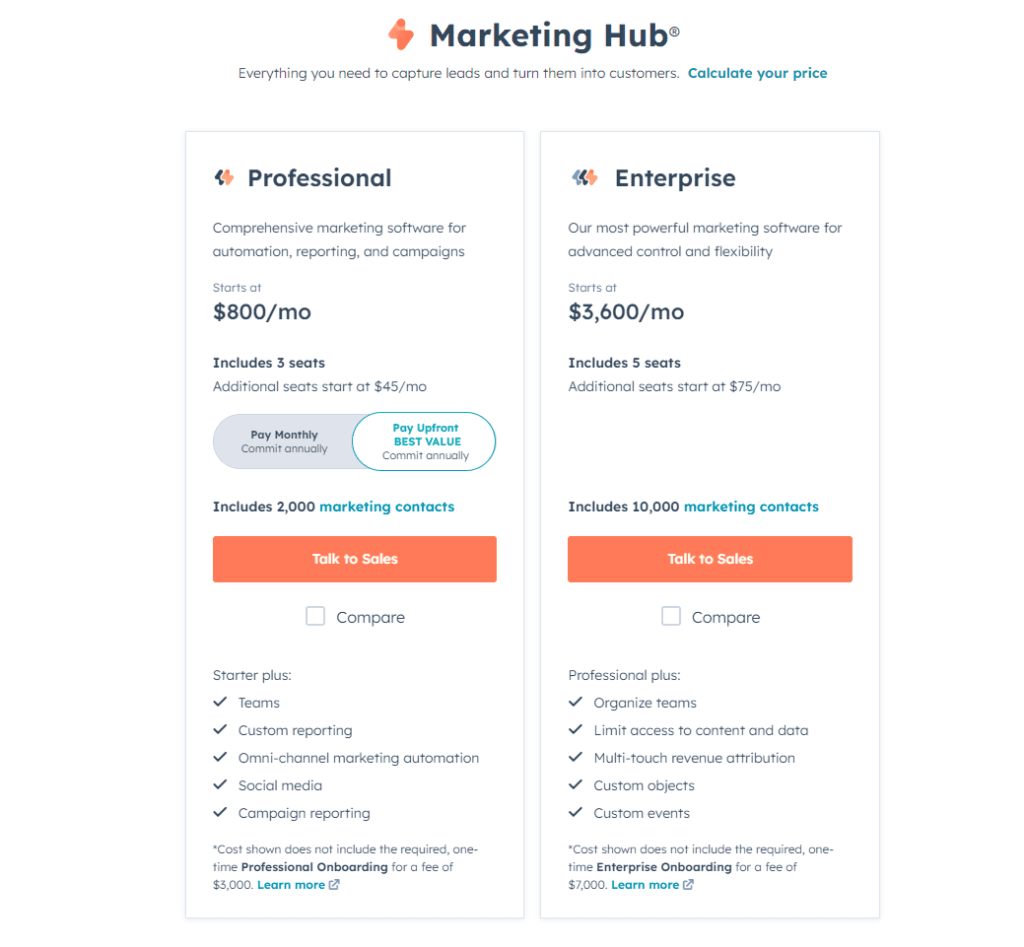In the ever-expanding universe of Customer Relationship Management (CRM) tools, selecting the right platform can feel like finding a needle in a digital haystack. Today, we’re zooming in on two standout contenders in this crowded space: HubSpot CRM and Bitrix24 CRM. Both platforms promise to streamline your customer management processes, boost your sales, and enhance your marketing efforts, but which one is the perfect fit for your business? Let’s dive into the specifics.
| HubSpot CRM | Bitrix24 CRM |
|---|---|
 |  |
| G2 Score -4.4 out of 5 | G2 Score -4.1 out of 5 |
| TrustRadius Score -8.5 out of 10 | TrustRadius Score -8.1 out of 10 |
Ease of Use and User Experience
In the fast-paced world of business, the last thing you want is for your CRM to slow you down with a clunky interface or a steep learning curve. The ease with which you and your team can navigate your CRM, understand its features, and utilize its full potential directly impacts your daily operations and, ultimately, your bottom line.
HubSpot CRM: The User-Friendly Giant
HubSpot CRM is often praised for its intuitive design and straightforward user interface, which make it accessible to users of all tech skill levels. From the get-go, HubSpot guides users with an onboarding process that eases them into the platform, ensuring they get up and running without unnecessary friction. The dashboard presents a clean, organized overview of your sales pipeline, marketing campaigns, and customer interactions, making it easy to get a snapshot of your business at a glance.
Customization in HubSpot is user-friendly, allowing teams to tailor the platform to their specific needs without requiring deep technical know-how. Whether you’re adjusting deal stages, setting up email templates, or creating custom reports, HubSpot’s interface keeps things simple and manageable.
Moreover, HubSpot’s commitment to providing a seamless user experience is evident in its continuous updates and feature rollouts, all designed to enhance usability and functionality. The platform also offers a wealth of educational resources through HubSpot Academy, empowering users to not only master the CRM but also to broaden their marketing, sales, and service skills.
Bitrix24 CRM: Feature-Rich and Flexible
Bitrix24 CRM takes a different approach, packing a vast array of features into its platform to cater to businesses looking for a comprehensive solution. With capabilities that span communication, project management, website building, and more, Bitrix24 offers a holistic ecosystem for managing various aspects of your business.
This breadth of features, while powerful, can present a steeper learning curve for new users. The interface, dense with options and tools, may require more time to navigate confidently. However, for businesses willing to invest the time, Bitrix24’s flexibility and extensive functionality can be a game-changer, offering deep customization options and automation capabilities that can significantly enhance efficiency.
Bitrix24 also distinguishes itself with its collaborative tools, integrating internal communication channels, task management, and document sharing directly within the CRM. This focus on collaboration makes it an attractive option for teams looking for a CRM that can also serve as a central hub for their day-to-day operations.
Pricing and Scalability
The right CRM should not only fit your current budget but also scale with your business as it grows. Both HubSpot CRM and Bitrix24 CRM offer a range of pricing options and scalability features, but they cater to different business needs and growth trajectories.
HubSpot CRM: Clear, Scalable Path with a Free Starting Point

HubSpot CRM stands out for its generous free tier, which offers a wide array of features suitable for small businesses or startups just beginning to explore CRM functionalities. This no-cost entry point includes contact management, email marketing tools, and basic analytics, making it an accessible option for businesses with tight budgets or those unsure of their long-term CRM needs.
As your business grows, HubSpot scales with you through its tiered paid plans across the Sales, Marketing, Service, and CMS Hubs. Each hub offers Starter, Professional, and Enterprise levels, providing increasingly advanced features and greater customization options. This modular approach allows businesses to tailor their CRM ecosystem to their specific needs, adding and upgrading functionalities as required. However, fully leveraging the HubSpot platform, especially at higher tiers or with multiple hubs, can represent a significant investment.
Bitrix24 CRM: Versatile Plans for Diverse Needs

Bitrix24 takes a different approach, offering a comprehensive free plan for an unlimited number of users but with limited features. This makes it a unique proposition for startups and small businesses that need to support a larger team without incurring immediate costs. The free plan includes basic CRM functionalities, task and project management features, and internal communication tools.
For more advanced features and greater scalability, Bitrix24 provides several paid plans, scaling up to accommodate businesses of various sizes and requirements. These plans increase the limits on CRM records, offer more storage, and unlock advanced features such as automation, sales funnels, and extensive reporting capabilities. The pricing structure of Bitrix24 is designed to fit a wide range of business sizes, but navigating the jump from the free plan to a paid plan requires careful consideration of the features and scalability you need.
Integration and Ecosystem Compatibility
In today’s interconnected digital landscape, a CRM doesn’t just need to manage customer relationships effectively; it also needs to seamlessly integrate with other tools and systems within your business ecosystem. This integration capability can greatly enhance operational efficiency and provide a more holistic view of customer interactions.
HubSpot CRM: A Centrally Connected Hub
HubSpot CRM is designed to be the core of your business’s marketing, sales, and service activities, with a strong emphasis on integration and ecosystem compatibility. The platform boasts an expansive App Marketplace filled with hundreds of integrations spanning a wide array of categories including email, social media, accounting, project management, and customer service tools, among others. These integrations not only facilitate data sharing across platforms but also enable streamlined workflows, reducing the need for manual data entry and ensuring that all team members have access to the latest information.
Moreover, HubSpot’s own ecosystem, encompassing the Sales Hub, Marketing Hub, Service Hub, and CMS Hub, is tightly integrated, providing a seamless user experience across various business functions. This cohesive ecosystem ensures that businesses can manage nearly all aspects of their customer interactions within a single platform, supported by consistent, up-to-date data.
Bitrix24 CRM: An All-in-One Platform with Broad Integration Options
Bitrix24 positions itself as an all-in-one business tool, offering not just CRM functionalities but also project management, website building, collaboration, and communication tools within a single platform. This comprehensive approach minimizes the need for external integrations by providing most of the tools a business might need within Bitrix24 itself. However, recognizing the diverse needs of businesses, Bitrix24 also offers a range of integration options with popular external tools and services, ensuring businesses can connect their essential software solutions to the Bitrix24 platform.
Bitrix24’s focus on collaboration and project management within its ecosystem makes it particularly appealing for businesses looking for a CRM that not only manages customer relationships but also facilitates team collaboration and project tracking. While its external integration marketplace may not be as extensive as HubSpot’s, Bitrix24 ensures that key tools and platforms can be connected, enhancing its utility as a comprehensive business management solution.

Related: Check out our free SEO suite

Analytics and Reporting
The capability of a CRM to not only collect but also intelligently analyze and present data can significantly impact strategic decision-making, sales forecasting, and customer engagement strategies. Here’s how HubSpot CRM and SugarCRM perform in providing actionable insights through their analytics and reporting features.
HubSpot CRM: User-Friendly Insights for Strategic Growth
HubSpot CRM is designed to make analytics and reporting accessible to all users, regardless of their data analysis expertise. It offers a suite of built-in reporting features that cover a broad range of needs, from sales performance and productivity metrics to marketing campaign effectiveness and customer service efficiency. The platform provides customizable dashboard views and easy-to-understand visual reports, allowing businesses to quickly grasp their data and make informed decisions.
A key strength of HubSpot is its seamless integration across the entire HubSpot ecosystem, enabling comprehensive analytics that span across marketing, sales, and service activities. This holistic view ensures that businesses can track the customer journey end-to-end, identifying opportunities for optimization and growth. Additionally, HubSpot’s CRM includes predictive analytics features, helping businesses forecast trends and make proactive decisions.
SugarCRM: Advanced Analytics for Deep Business Insights
SugarCRM takes analytics and reporting to a more advanced level, offering powerful tools designed for businesses that require deep, detailed insights into their operations. SugarCRM’s reporting capabilities are highly customizable, allowing users to create complex reports that precisely match their informational needs. This includes sales trends, customer behavior patterns, and efficiency metrics across various business processes.
One of SugarCRM’s standout features is its advanced analytics platform, Sugar Discover, which provides automatic insights and AI-driven forecasting. This enables businesses to not only understand their current performance but also to anticipate future trends and outcomes. SugarCRM is focused on delivering actionable intelligence that can drive strategic business decisions, making it an excellent choice for enterprises with sophisticated data analysis needs.
Customer Support and Training
The quality of support and the availability of educational resources can significantly influence not only the initial learning curve but also the long-term success and optimization of the CRM within your business operations.
HubSpot CRM: A Leader in Educational Support
HubSpot CRM excels in providing an extensive array of support and training resources, designed to assist businesses in not only navigating the CRM but also in mastering broader sales, marketing, and customer service strategies. HubSpot Academy stands out as a premier online learning platform, offering a wealth of free courses, certifications, and training materials. These resources are invaluable for teams looking to enhance their skills and leverage the full suite of HubSpot’s tools effectively.
In terms of direct support, HubSpot offers a variety of channels including email, phone, and live chat support, ensuring that users can get help when they need it. The level of support available can vary depending on your subscription tier, but even at the free level, users have access to a comprehensive knowledge base and community forums for self-service support and peer advice.
Bitrix24 CRM: Comprehensive Support with a Collaborative Twist
Bitrix24 CRM, while offering a robust platform with a wide range of functionalities beyond CRM, also provides solid customer support and training resources. Bitrix24 emphasizes collaborative tools within its ecosystem, and this philosophy extends to its approach to support, encouraging users to engage with community forums and user groups for peer-to-peer assistance and advice.
Bitrix24 provides direct support through live chat and email, with the responsiveness and depth of support varying by subscription plan. For businesses looking for more hands-on assistance, Bitrix24 offers paid support packages that include priority support, dedicated account managers, and personalized onboarding and training sessions.
In addition to direct support, Bitrix24 offers a selection of training materials, including video tutorials, webinars, and a detailed knowledge base. These resources are designed to help users maximize the platform’s capabilities, although they may not cover as wide a range of topics as HubSpot Academy.
Conclusion
In our comprehensive exploration of HubSpot CRM versus Bitrix24 CRM, we’ve delved into several key areas that are crucial for businesses when choosing the right CRM solution. From ease of use and user experience, pricing and scalability, to integration capabilities, and customer support and training, both CRM platforms offer distinct advantages tailored to different business needs and preferences. HubSpot CRM shines as an intuitive, user-friendly platform ideal for businesses of all sizes looking for an all-in-one solution to manage their customer relationships, sales, marketing, and customer service efforts. Bitrix24 CRM, on the other hand, stands out for its robust, all-encompassing suite of tools that extend beyond CRM functionalities to include project management, website building, collaboration, and communication tools.
READ NEXT:
- Branding for the Entertainment Industry: Crafting Memorable Experiences and Stories
- HubSpot CRM vs Insightly CRM: The Best CRM Tool for You
- HubSpot CRM vs Salesforce CRM: The Best CRM Tool for You
- Baremetrics vs MonsterInsights: The Best Marketing Analytics Tool for You
- How to Create Vision and Mission Statements for Your Startup: All You Need to Consider
- 9 Best Marketing CRM Software (For You): In 2023
- 19+ Top Customer Relationship Management (CRM) Software: What’s Best?






















Comments are closed.